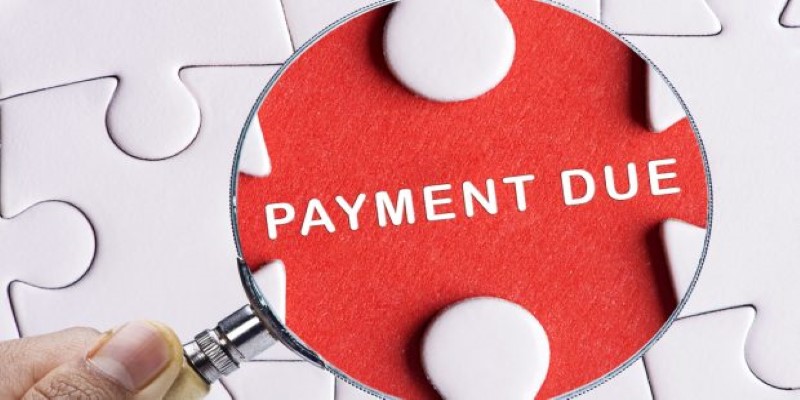What To Do If Your Car Insurance Claim Gets Denied
Dealing with a denied car insurance claim can feel like a punch to the gut, especially if you’re already stressed from an accident or damage to your vehicle. When an insurer denies your claim, it can leave you wondering what went wrong and how you should move forward. But don't panic—there are steps you can take to challenge the denial and potentially get your claim approved.
Why Would Your Car Insurance Claim Be Denied?
Understanding why your claim was denied can help you figure out your next steps. Common reasons for claim denials include:
Missed Policy Payments
If you’ve missed payments, your policy might be inactive, and your insurance company could refuse to pay out a claim. Insurance providers usually send reminders about missed payments, but if you’ve fallen behind, it’s essential to get your payments up to date as soon as possible.

Exclusions In Your Policy
Every car insurance policy has exclusions—specific situations or types of damage that aren’t covered. For example, damage caused by natural disasters like flooding might not be covered by standard policies, or you may not have the necessary coverage for non-collision events.
Insufficient Coverage
Sometimes, drivers assume they have coverage for specific situations when they don’t. If your policy doesn't include the coverage you thought it did, or if you don't have enough coverage to pay for the full extent of the damage, the insurer may deny your claim.
Fault Determination
If your insurer believes that you were at fault for the accident, your claim could be denied, especially in no-fault states, or if you're found to be in violation of traffic laws. It's important to understand that even if you feel the other driver was more responsible, the insurance company might not see it that way.
Fraud Concerns
If the insurance company suspects fraud—like exaggerating the extent of damage or providing false information—it can result in a claim denial. Always be honest and transparent with your insurer.
Steps To Take If Your Car Insurance Claim Is Denied
Now that you know why your claim might have been denied, here are the steps you should take to address the situation.
Review the Denial Letter Carefully
When your claim is denied, the insurance company will send you a letter explaining the reason for the denial. Carefully read through this letter to understand exactly why your claim was rejected. This will help you decide if the denial is valid or if it’s based on a misunderstanding or incorrect information.
Look For Specific Policy Clauses:
The letter should explain which part of your policy led to the denial. For example, if it’s because of an exclusion or insufficient coverage, the insurer should cite the specific clause in the policy.
Note Deadlines:
Most insurers have deadlines for disputing claim denials. Make sure to note these and act quickly to avoid losing your right to challenge the denial.
Contact Your Insurance Company
If you're confused about the denial or feel it was issued in error, contact your insurance company directly. Speak to your claims adjuster or a customer service representative who can walk you through the reason for the denial and whether there’s any way to resolve the issue.
Request Clarification:
Ask for specific reasons why your claim was denied and for further details on any evidence that led to the decision.
Double-Check Your Coverage:
Ensure that the insurance company has the correct details about your policy and that they have accounted for all of the coverage you’re entitled to.

Gather Documentation and Evidence
If the reason for the denial is unclear or seems unjustified, gathering additional documentation can help support your case. This might include:
Police Reports:
If you filed a police report after the accident, this can be crucial evidence in proving the other party’s fault or confirming the details of the incident.
Photos And Videos:
Visual evidence of the damage to your car or the scene of the accident can be powerful tools for disputing a denial. Make sure you have high-quality images showing the damage and any relevant details (e.g., road conditions, weather, or other vehicles involved).
Medical Records:
If the denial was related to personal injury protection (PIP) or medical claims, medical records showing the extent of your injuries can help challenge the insurance company’s decision.
Witness Statements:
Statements from witnesses who were present during the accident can provide additional support, especially if they can corroborate your version of events.

File an Appeal with the Insurance Company
Most insurance providers have an appeal process in place. If you disagree with the denial, you have the right to challenge it. Filing an appeal typically involves submitting a formal letter or claim, providing additional evidence or clarifications, and requesting a review of the decision.
Be Specific In Your Appeal:
Address the specific reasons for the denial and provide evidence that supports your case. Whether it's a photo, medical record, or witness testimony, make sure your appeal is detailed and backed up by facts.
Check The Timelines:
Appeals often need to be filed within a certain timeframe, so be sure to act quickly. If you miss the deadline, you might lose your chance to overturn the denial.
Seek Help from a Third-Party Expert
If you’re still struggling to get your claim approved, you may want to consult an attorney or an insurance claims expert. Professionals who specialize in insurance claims can help you navigate the process and may be able to identify legal grounds for your appeal.
Legal Advice:
An attorney specializing in insurance claims can give you insight into whether the denial was unjustified and help you understand your legal rights. In some cases, they can also negotiate on your behalf to get the claim paid.
Claims Consultant:
An insurance claims consultant is a professional who understands the intricacies of insurance policies and claim processes. They can guide you through the process of disputing the denial and help ensure that your claim is handled properly.
Final Thoughts: Stay Persistent And Know Your Rights
While having your car insurance claim denied is frustrating, it's not the end of the road. By understanding why the claim was denied, gathering the right evidence, and following the appropriate channels to dispute the denial, you can increase your chances of getting the outcome you deserve. Don’t be afraid to stand up for your rights and seek help when needed. Insurance companies are obligated to honor your policy, and with persistence, you can often get your claim approved.







